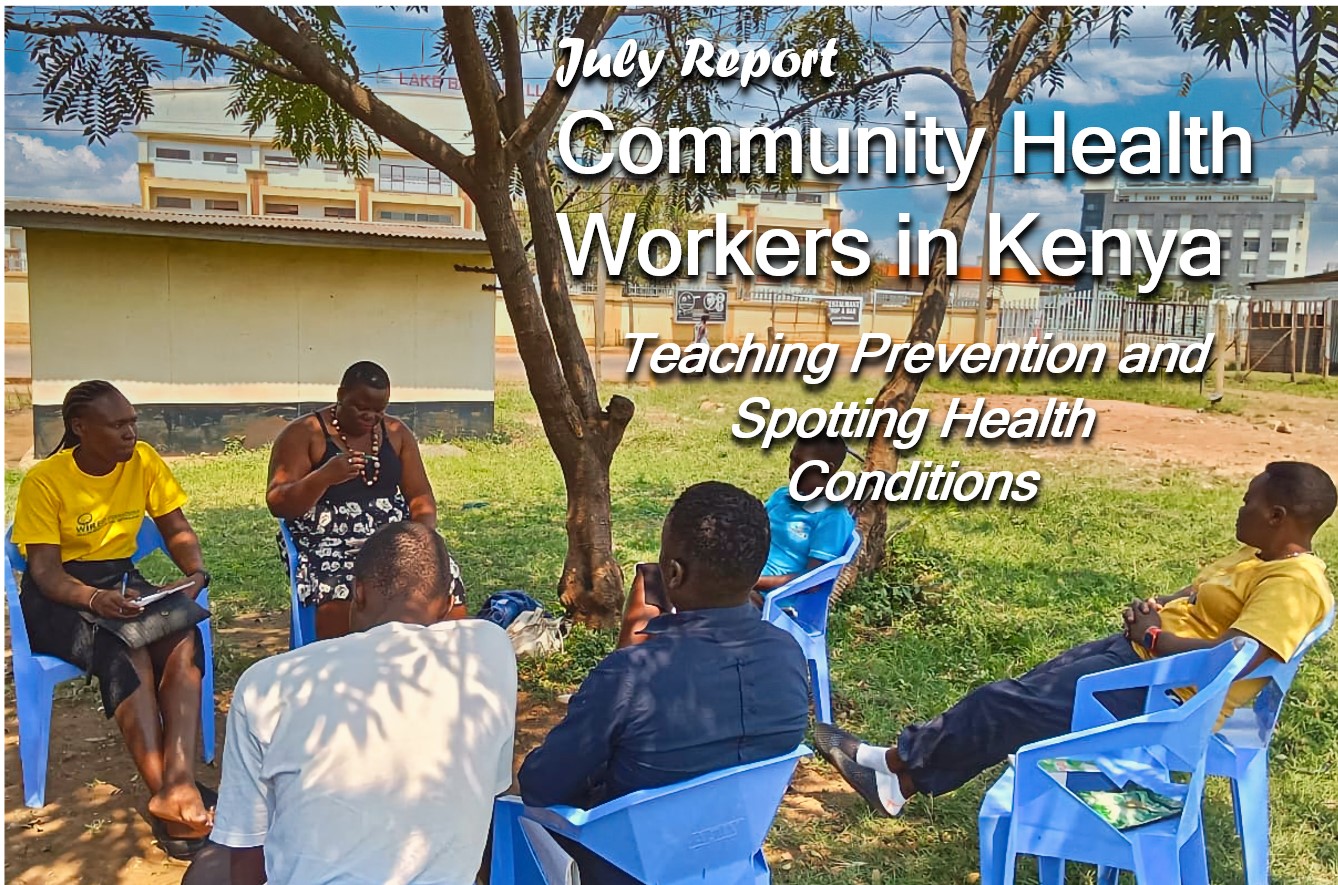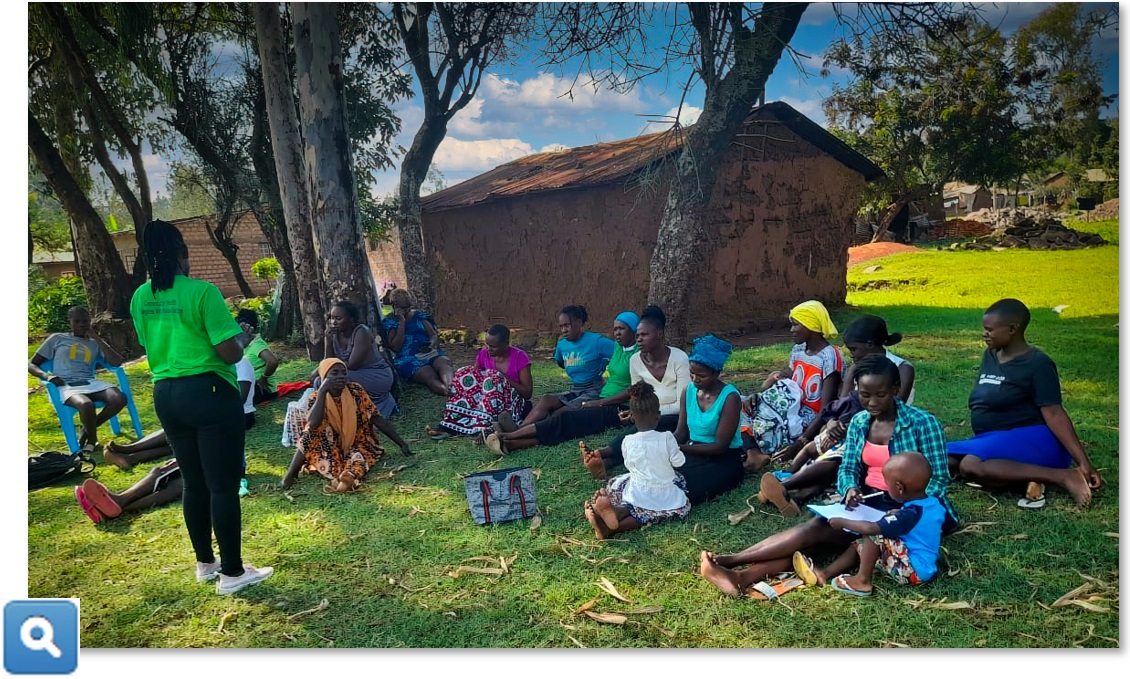By Allison Kozicharow; Edited by Elizabeth Fine
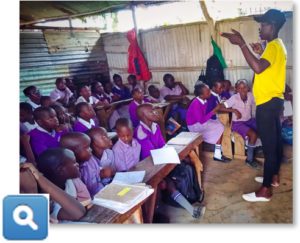 WiRED International launched our Community Health Worker (CHW) Program in Kisumu, Kenya during the COVID-19 pandemic in 2020. The first CHW team of 13 members reached a total of 3,360 people in their community with health issues each month. Today the CHW team has nearly doubled in number and serves an average of 10,000 people each month!
WiRED International launched our Community Health Worker (CHW) Program in Kisumu, Kenya during the COVID-19 pandemic in 2020. The first CHW team of 13 members reached a total of 3,360 people in their community with health issues each month. Today the CHW team has nearly doubled in number and serves an average of 10,000 people each month!
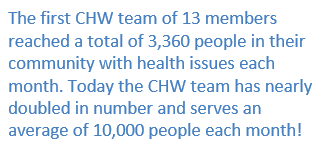 Statistics, while important, can never match the power and immediacy of the real life stories WiRED CHWs tell. This July, WiRED’s CHWs report their activities in their own words. What follows are some examples of these compelling stories.
Statistics, while important, can never match the power and immediacy of the real life stories WiRED CHWs tell. This July, WiRED’s CHWs report their activities in their own words. What follows are some examples of these compelling stories.
Educating community members on the dangers of diarrhea*
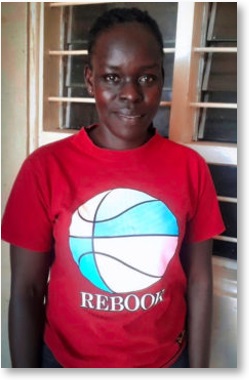
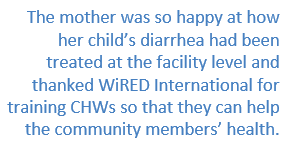 After giving a health education sensitization talk in my community, I met a mother whose child exhibited severe diarrhea. I called the woman aside and explained to her the dangers of diarrhea and how best to control it. After I counseled her I referred her to the nearest health facility for further diagnosis for her child. after two days when I did follow-ups I checked on the woman’s child. I learned that he received zinc and oral hydration solutions at the facility for his condition. The mother was so happy at how her child’s diarrhea had been treated at the facility level and thanked WiRED International for training CHWs so that they can help the community members’ health.
After giving a health education sensitization talk in my community, I met a mother whose child exhibited severe diarrhea. I called the woman aside and explained to her the dangers of diarrhea and how best to control it. After I counseled her I referred her to the nearest health facility for further diagnosis for her child. after two days when I did follow-ups I checked on the woman’s child. I learned that he received zinc and oral hydration solutions at the facility for his condition. The mother was so happy at how her child’s diarrhea had been treated at the facility level and thanked WiRED International for training CHWs so that they can help the community members’ health.
– CHW Millicent Randiki
*Note: WiRED’s CHWs routinely provide community health training sessions and they stay around after the presentations to talk with audience members. In this case, a woman stayed behind to talk with Millicent about her child’s diarrhea problem. CHWs are thoroughly trained in infectious diseases and they fully understand the deadly outcomes that diarrhea can have on children. Millicent’s quick action may have saved this child’s life. Moreover, her follow-up on the child’s condition highlights an important element of the CHW duties in these low-resource communities.
Suspecting fibroids in a woman led to surgery
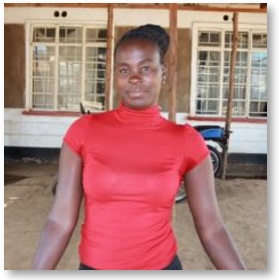
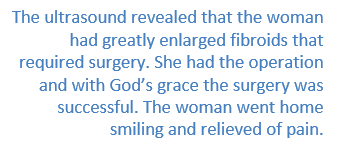 During my usual community outreach work I met a woman who I guessed had been suffering from fibroids. She opened up to me and told me how it affected her life. She said that each time she had sexual intercourse with her husband all she feels is severe pain. I took a personal interest in her situation and took the woman to the hospital. The hospital recommended an ultra sound to find out if it was fibroids or some disease. The ultrasound revealed that the woman had greatly enlarged fibroids that required surgery. She had the operation and with God’s grace the surgery was successful. The woman went home smiling and relieved of pain.
During my usual community outreach work I met a woman who I guessed had been suffering from fibroids. She opened up to me and told me how it affected her life. She said that each time she had sexual intercourse with her husband all she feels is severe pain. I took a personal interest in her situation and took the woman to the hospital. The hospital recommended an ultra sound to find out if it was fibroids or some disease. The ultrasound revealed that the woman had greatly enlarged fibroids that required surgery. She had the operation and with God’s grace the surgery was successful. The woman went home smiling and relieved of pain.
— CHW Mary Atieno
Taking measures to prevent reoccurrence of malaria
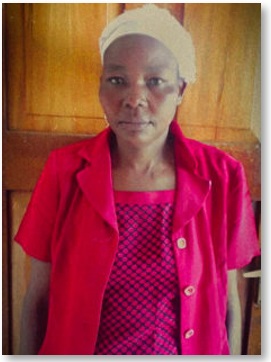
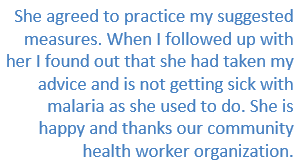 During my sensitization and awareness campaign in the community concerning health-related issues, I met a woman who complained that she experienced attacks of malaria now and again. I had a one-on-one talk with her, and she told me that her compound where she lives is covered with bushes. I informed her that bushes are breeding places for mosquitoes and need to be cut down. I also told her about other preventive measures against malaria such as the use of insecticide-treated mosquito nets, draining away all stagnant waters and closing all the windows early in the evening. She agreed to practice my suggested measures. When I followed up with her I found out that she had taken my advice and is not getting sick with malaria as she used to do. She is happy and thanks our community health worker organization.
During my sensitization and awareness campaign in the community concerning health-related issues, I met a woman who complained that she experienced attacks of malaria now and again. I had a one-on-one talk with her, and she told me that her compound where she lives is covered with bushes. I informed her that bushes are breeding places for mosquitoes and need to be cut down. I also told her about other preventive measures against malaria such as the use of insecticide-treated mosquito nets, draining away all stagnant waters and closing all the windows early in the evening. She agreed to practice my suggested measures. When I followed up with her I found out that she had taken my advice and is not getting sick with malaria as she used to do. She is happy and thanks our community health worker organization.
— CHW Milka Nyadiang’a

CHW Statistics for July 2024
During the month of July 2024, 19 CHWs in Kisumu, Kenya, reached a total of 9,505 people with health services. Working 24 hours per week, each of the CHWs met with at least 92 patients a week, and the largest number seen in a week by a single CHW was 210, most of them in health training classes.
In July, the top health-related issues were, as follows, in order of prevalence:
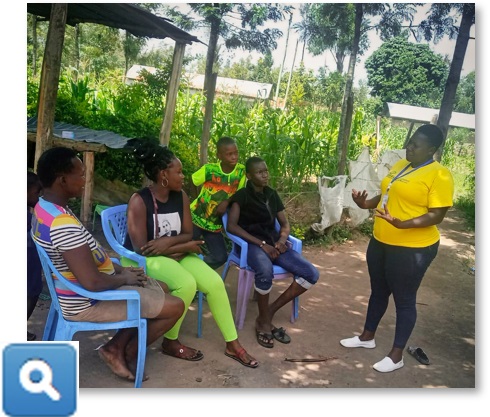 Malaria
Malaria- HIV/AIDS
- Menstrual hygiene
- Nutrition
- Hygiene and sanitation
- Tuberculosis
- Cholera
- Handwashing

